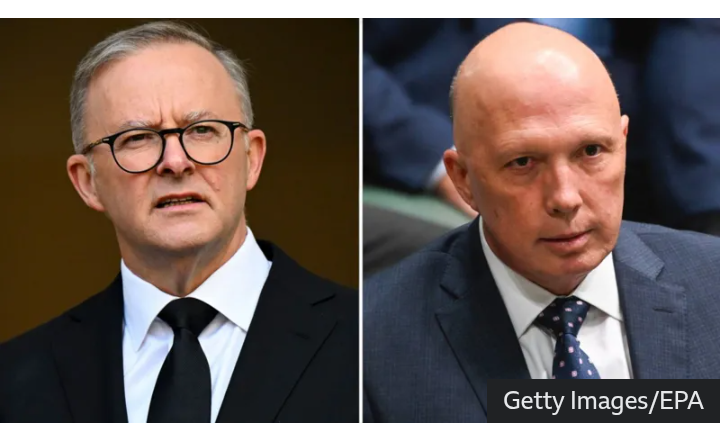Australia Set For Federal Election On May 3.
Australia will hold its federal election on 3rd of May, as Prime Minister Anthony Albanese announced the date following his visit to the Governor-General in Canberra. The election will determine whether Albanese’s Labor Party can retain its narrow three-seat majority or if the opposition, led by Peter Dutton, will take control.

Opinion polls suggest a tight race between the two major parties, with the possibility of a hung parliament. This could lead to negotiations with independent MPs and minor parties, which collectively secured a record share of votes in the last election in 2022.
Cost of Living at the Forefront
The election campaign is expected to focus on cost-of-living challenges, a key issue for Australian voters. Concerns over housing affordability, rising grocery prices, and access to healthcare are shaping political debates. While climate action was a central issue in the previous election, voters are now increasingly focused on managing record immigration levels and addressing crime.
Albanese has pledged to tackle the cost-of-living crisis, promising tax cuts and increased access to free healthcare services. He has warned that electing his opponent would be a setback for the nation. In contrast, Dutton has positioned himself as the leader to “get Australia back on track,” vowing to curb crime and strengthen the economy.
A High-Stakes Election
Australia’s political landscape is traditionally dominated by Labor and the Liberal-National coalition. To form a majority government, either party must secure at least 76 of the 150 seats in the House of Representatives.
Albanese, who has been in power since 2022, took office after a decade of political instability that saw six leadership changes in eight years. He campaigned on promises of unity, integrity, and stronger climate policies. His government has since introduced stricter emissions targets but faced setbacks, including the failure of a 2023 referendum on recognising Aboriginal and Torres Strait Islander people in the constitution.
Despite these achievements, Albanese has faced criticism over the nation’s economic challenges. His purchase of a A$4.3 million (£2.2m) cliff-top home during a national housing crisis drew backlash, adding pressure to his leadership.
The Opposition’s Strategy
Dutton, a former Queensland police officer with over 20 years in parliament, has built a reputation as a hard-line conservative. He has held key ministerial roles, including in health, immigration, defence, and home affairs. His past policies on asylum seekers and his involvement in the removal of former Prime Minister Malcolm Turnbull have shaped his political image.
While he has previously opposed same-sex marriage and diversity initiatives, Dutton has recently sought to soften his public persona, arguing that his reputation as a political hardliner does not reflect who he truly is.
A Historic Decision for Voters
Australians have not voted out a first-term government since 1931, making this election a crucial test for Albanese’s leadership. With economic pressures mounting and public dissatisfaction growing, both major parties will need to convince voters that they have the right solutions to address the country’s most pressing issues.
As the campaign heats up, Australians face a pivotal choice—whether to grant Labor another term or entrust the opposition with leading the nation into the future.


